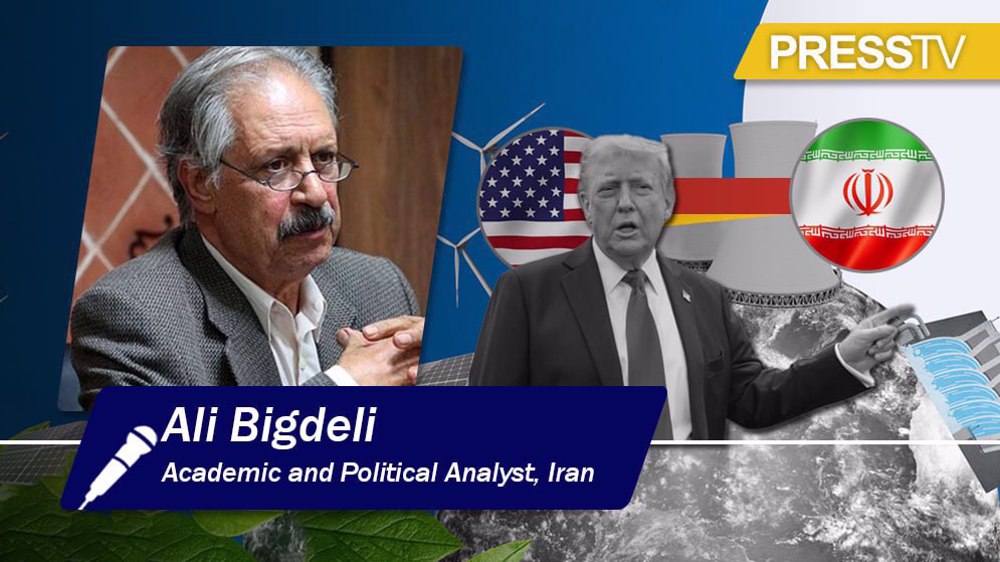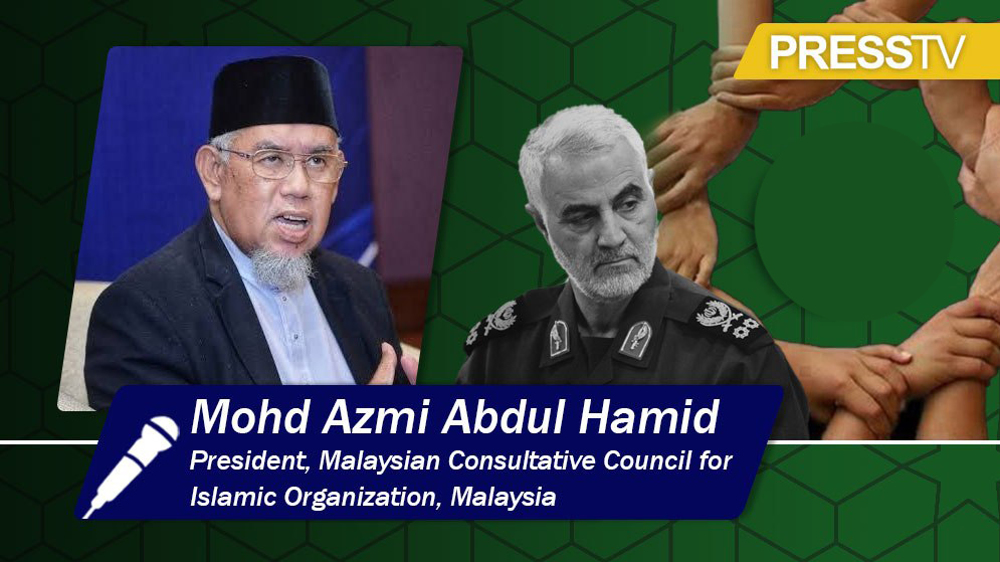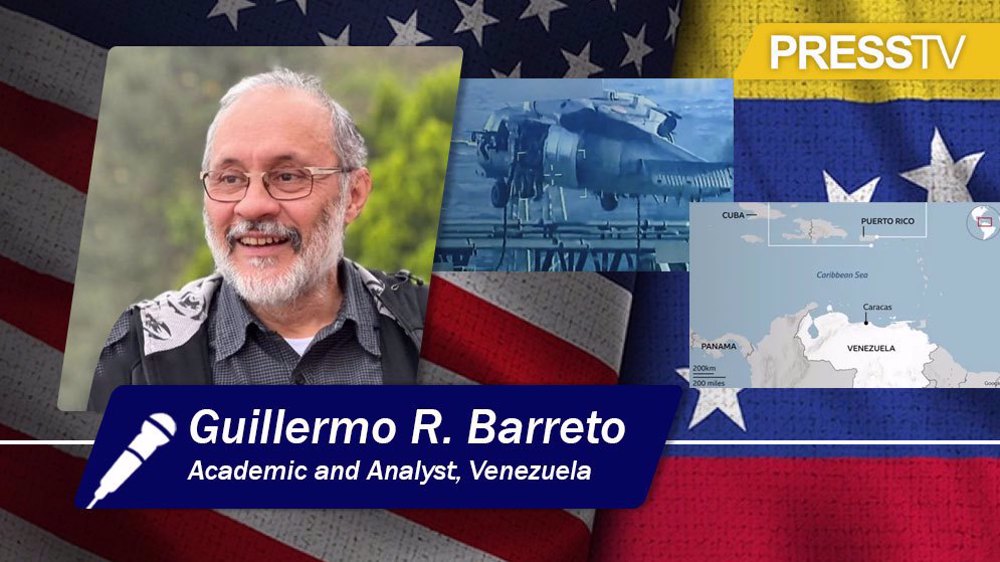Iran within its rights under NPT to pursue enrichment despite US pressure: Academic
By Alireza Hashemi
Iran is well within its rights to enrich uranium despite American pressure, and relinquishing it would constitute a violation of the country’s sovereignty and a setback to its scientific progress, says an academic.
In an interview with the Press TV website, Ali Bigdeli, a senior academic and political analyst, asserted that enrichment of uranium is Iran's "national and legal right," and it must continue on this path, emphasizing the country's commitment to preserve its nuclear independence under the Non-Proliferation Treaty (NPT).
Since last month, Iran and the US have held five rounds of indirect nuclear talks, mediated by Oman.
One of the key sticking points has been the American demand for Iran to halt its enrichment program and instead join a consortium with other nations that would handle enrichment on its behalf.
The US also has refrained from offering any guarantees that it would fully remove the sanctions and won't again unilaterally withdraw from the deal, as it did in May 2018 during Donald Trump's presidency.
Bigdeli said Iran’s enrichment activities are in full compliance with international law, as stipulated by the NPT, which guarantees the country's right to develop nuclear energy for peaceful energy purposes.
‘No enrichment, no deal’: Iran rejects US demand in nuclear talkshttps://t.co/sK6oOt1h0b
— Press TV 🔻 (@PressTV) June 4, 2025
He noted that Iran has invested heavily in its nuclear industry over the years, developing the capability to enrich uranium, without being dependent on other countries.
This self-reliance, he remarked, is a point of national pride, and any perceived surrender of sovereignty could cause public backlash.
"The Iranian people would not accept the relegation of the right to uranium enrichment,” he said, backing the government's position that halting enrichment is non-negotiable.
Consortium proposal flawed
Regarding the US proposal for an externally controlled consortium, Bigdeli said the Islamic Republic is not willing to rely on the US and accept it.
Instead, Iran has proposed its own version of a consortium, one in which it would conduct enrichment and supply nuclear material to regional neighbors like Saudi Arabia and the UAE.
“We accept that a consortium be created, and we enrich and provide materials to Saudi Arabia and the UAE,” Bigdeli explained.
However, he hastened to add that the consortium proposals face a major hurdle: Saudi Arabia and the UAE may be reluctant to join it.
Tehran stresses that any agreement achieved through indirect negotiations with the US must guarantee the continuation of nuclear enrichment in Iran and ensure a verifiable lifting of sanctions.
— Press TV 🔻 (@PressTV) June 2, 2025
Follow: https://t.co/mLGcUTS2ei pic.twitter.com/nJNbwRlDrE
“Saudi Arabia and the UAE are not ready, even under US pressure, to accept membership in this consortium, because our relations, though improved, are not yet very favorable.”
These challenges, he said, render the consortium idea impractical under the current geopolitical climate.
IAEA, E3 also at play
Europe and the International Atomic Energy Agency (IAEA) also play a major role in ongoing nuclear talks between Tehran and Washington. With the IAEA Board of Governors scheduled to meet in the coming days, the agency is expected to release a report on Iran’s nuclear activities.
Bigdeli predicted that the report “does not seem likely to be favorable,” but expressed confidence that it would not lead to immediate escalation.
“It doesn’t seem that in these conditions, while we’re negotiating with the Americans, the report would result in condemnation or referral to the UN Security Council,” he said.
However, he warned that the European parties to the 2015 nuclear deal, known as the E3, might take steps to pressure Iran into granting IAEA inspectors broader access to its nuclear facilities.
Iran will never abandon enrichment, preparing new counter-proposal to US offer: Ayatollah Khamenei's aidehttps://t.co/ed84mZ623X
— Press TV 🔻 (@PressTV) June 5, 2025
Dialogue the only path forward
Despite the complexities, Bigdeli emphasized the critical need for a negotiated solution.
“For us and America, there is no alternative except negotiations,” he asserted, highlighting the importance of diplomacy and talks to address the issue.
He also dismissed Israeli threats of military action against Iran's nuclear facilities as “nonsense,” arguing that the Zionist regime cannot act without US approval, which, he said, has not been granted.
“The possibility of a military attack is very low,” he added, echoing the view that military confrontation is not a viable option for the US and its allies.
Bigdeli called for a more flexible diplomatic approach in light of changing regional dynamics, emphasizing that today’s context differs significantly from 2015, when Iran signed the Joint Comprehensive Plan of Action (JCPOA).
“The current circumstances are not the same as before. We are now in a situation where we must adopt a more flexible policy,” he remarked, urging policymakers to adapt to the new reality.
Trump threatens 200% wine tariffs on France to push Macron to join Gaza board
Yemen’s Saudi-backed PLC slams UAE for running secret prisons; Abu Dhabi denies
Swiss MPs move to strip UEFA of tax-exempt status over failure to ban Israeli teams
VIDEO | Massive Michigan pileup sees over 100 vehicles collide in highway crash
Diagnosing the roots of Iran’s economic turmoil
VIDEO | Press TV's news headlines
Son of Iran’s deposed Shah urges US, Israel to bomb country after failed ‘regime change’ plot
Jan. 12, 2026 – the day Iranians again rallied to reject hostile plots against Islamic Republic










 This makes it easy to access the Press TV website
This makes it easy to access the Press TV website